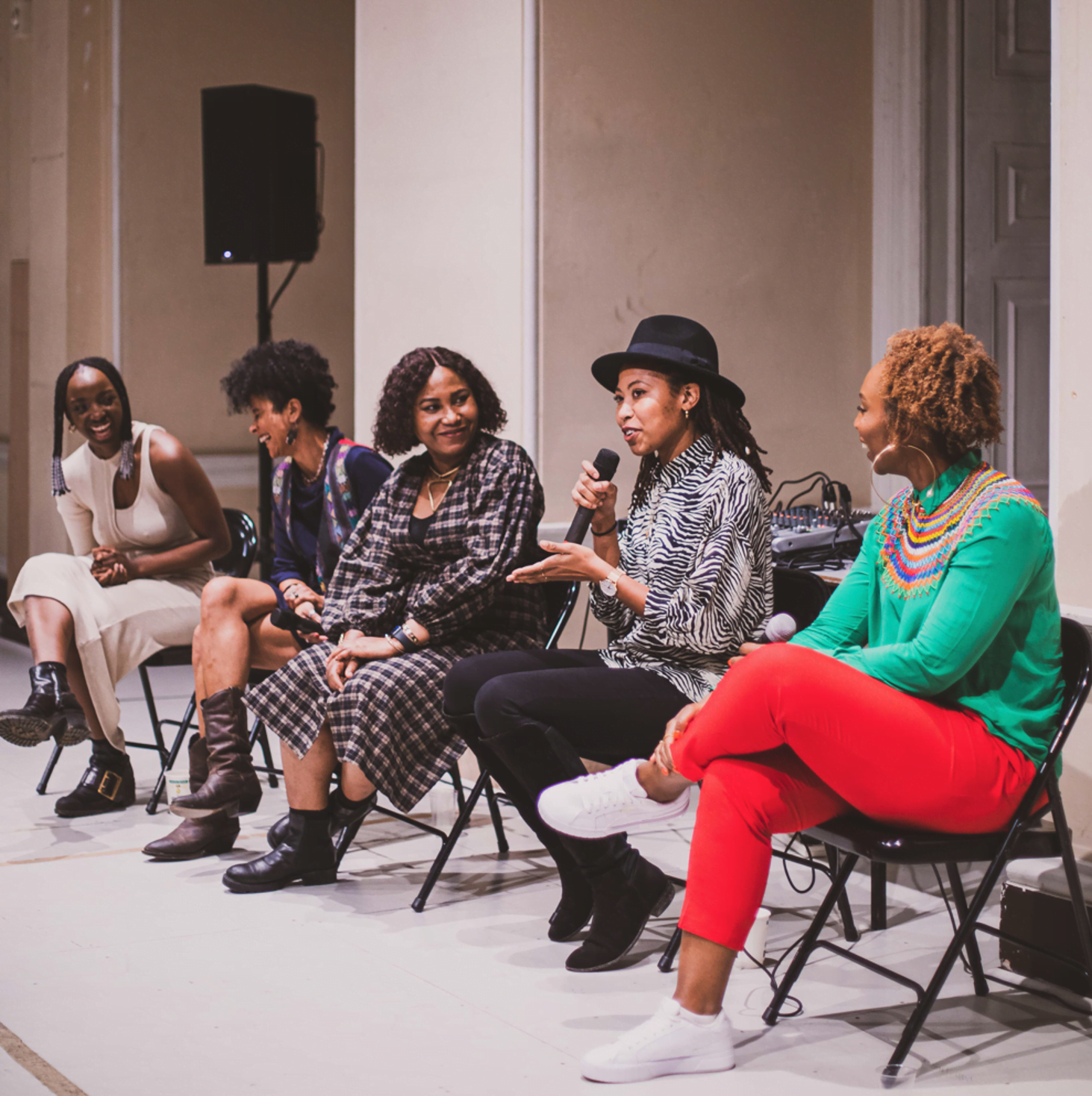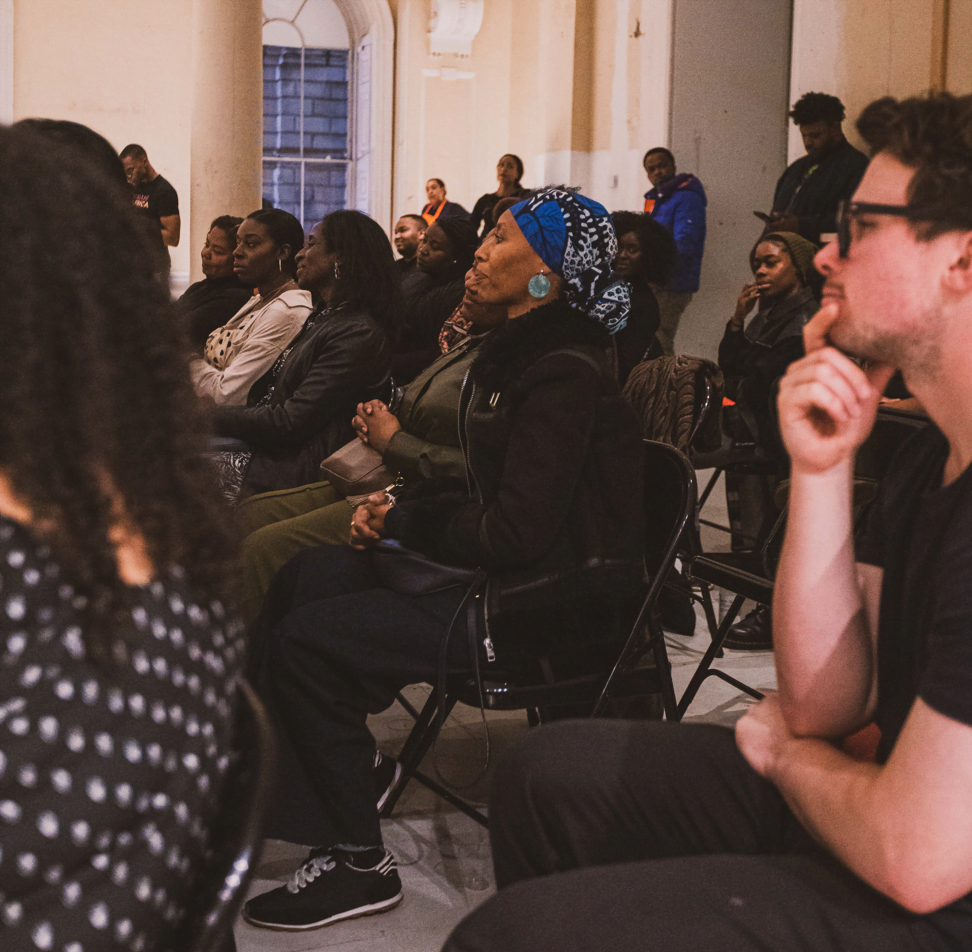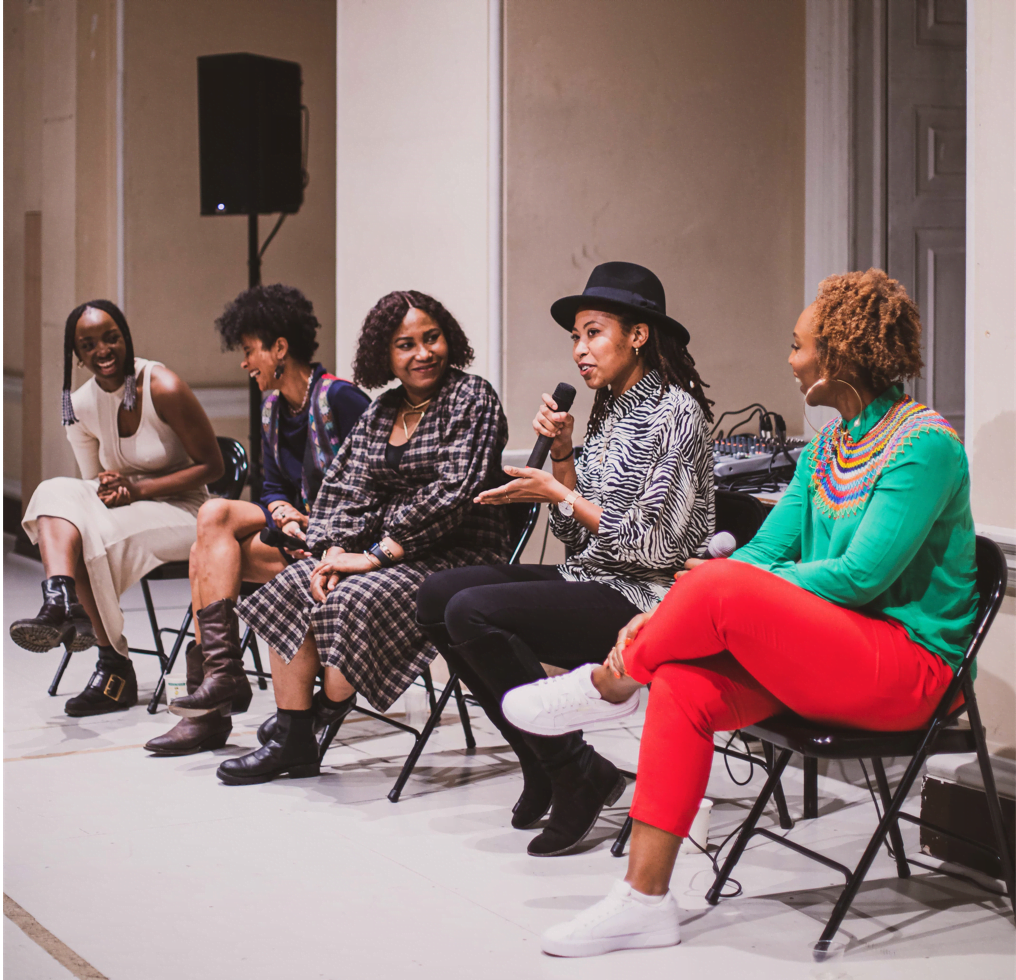Black Women in Hospitality Celebrated for Black History Month
By Rhona Hamilton-Jones
Black History Month was successfully rounded off with another sell-out event, Black Women In Hospitality. In collaboration with Akwasi Brenya-Mensa at Somerset House, the night began with the refreshing welcome drink ‘Sapele Special’ with indgredients Pedro’s Premium Ogogoro, Lemon and Rosemary Syrup.
“There have only been four black women with consistent and visible presence across hospitality and food media throughout the four decades of my life, which is a problem because the talent is out definitely out there,” said founder Lorraine Copes, as being the main reason that this event was celebrating Black Women in Hospitality.
Lorraine was joined by four panellists, Keshia Sakarah, food writer, founder and chef at Caribe’, has spent 14 years in the sector, starting her journey because cooking was something that she enjoyed and was good at, not realising how it would dominate her life upon joining the industry. Similarly, Jokè Barake, chef and owner of Chishuru, considers herself a ‘feeder’, enjoys seeing people fed and happy, with her love transitioning from a supper club to opening her own restaurant during the winter of 2020.
Fikayo Ifaturoti made the decision to transition towards a career in wine after studying pharmacy, though initially struggled with multiple rejections for sommelier positions. “I thought, maybe it’s my hair, and so I changed my hair from braids to a weave and got the next job I applied for”. Fikayo explained that working within the wine industry, which is notorious for being a white male-dominated industry, has provided some character testing moments. “But I’ve come out the other side and I already feel fulfilled,” Fikayo commented. Jenna Ba the Global Brand Ambassador for Diageo, started out as a bartender because she is ‘hyperactive’ and thought “what other job can you constantly meet interesting people?”
The discussion moved on to fear, and whether it has acted as a barrier to progress to date. Jenna explained that “fear pumps you up, makes you grow and stretch,” similarly Keshia explained that she will regularly do what makes her uncomfortable, though she shared a worry about telling the story and context of food, which doesn’t always come from a joyful place. “Presenting the other side of the story which hasn’t been recorded can be quite triggering for those who hold the power- the publishers of white middle England,” She said “There’s the fear of compromising these stories for the wider audience, but we need space to tell the true story because it is valid and relatable to those who lived it.”
On the other end of the spectrum, the panellists spoke about pride. After suffering from imposter syndrome as a Black woman in the industry, Fikayo now takes pride in feeling comfortable in the way she presents, “showing your authentic self whether it is accepted or not, after a period of trying to blend in.” Jenna was also proud of her own story- “I like to start presentations saying I’m from zero generations of scotch distillers, makers or drinkers.”
Lorraine went on to ask, how important is food, drink and culture to you?
“Food and drink is culture,” insisted Joke. She noted how the drink everyone was currently enjoying, Ogogoro, is “so strongly intertwined with the culture of ancestral worship,” that when the population became more Christian in Nigeria, people moved away from the drink. Keshia agreed with the importance of food in history “food was the space people could keep their traditions after everything else was stripped away,” She thinks about how the method she uses to wash and soak saltfish, was the same process for enslaved people when they had nothing else to eat; shown to her by her grandmother, 400 years later. “It’s more than just sustenance or a recipe; it carries so much context if you chose to delve deeper.”
Lorraine closed on an important question- what does it mean to be a Black woman in hospitality? All agreed with Jenna’s statement, “sometimes it’s hard work, sometimes it is rewarding, sometimes it’s not.” Joke explained how there’s always something to prove, “To suppliers, constantly explaining yourself and why you’re here. Even to the people who are supposed to understand.”
Fikayo added that being a Black woman in the wine industry sometimes made her a token, “But that can give you access to spaces you might not usually be in, though sometimes people even realise that you’re actually qualified to be in the room anyway.”
Lorraine reflected on the power in the community “This is the first event I have attended within the sector during my 20-year career, with so many black people in attendance,” She stated that she felt the need to create these spaces for this to come to fruition. Whilst the journey isn’t always easy, we are moving forward as an industry.
The rest of the evening saw more drinks from some of our well-known sponsors; Belu, Appleton Rum and Wray & Nephew, as well as the introduction of some exciting West African beverages from Value Africa and London Manya, the latter being a premium sparkling palm wine. Our collaborator Akwasi provided a delicious array of West African canapes, which went very quickly! Make sure to visit his website for more information on his new restaurant, Tatale, opening in spring 2022.
We’d like to thank everyone who attended; members of the Be Inclusive Hospitality community and allies within the sector.
If you would like to collaborate, partner or have event space available to support our 2022 initiatives, please get in touch.
contact@bihospitality.co.uk



